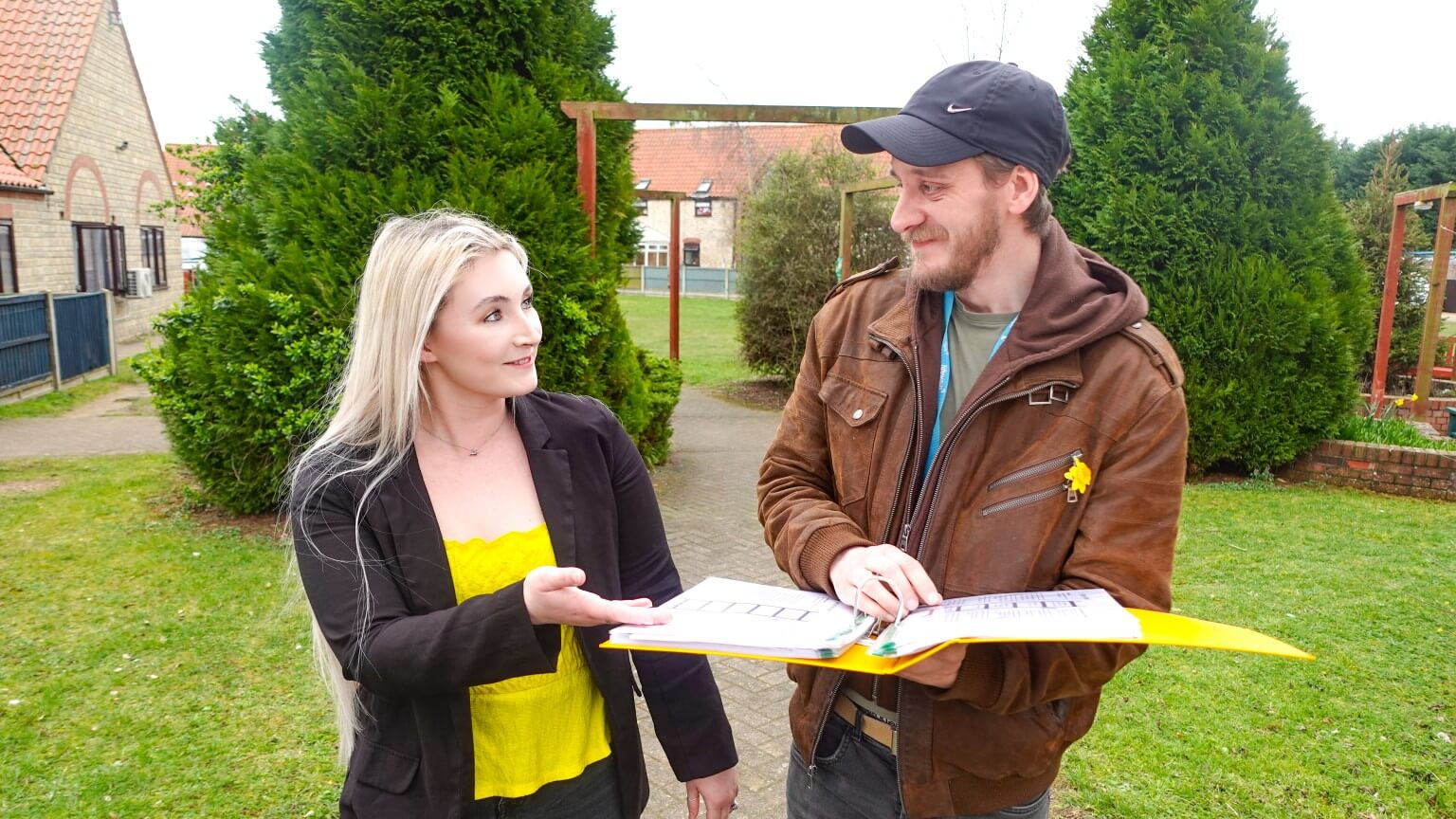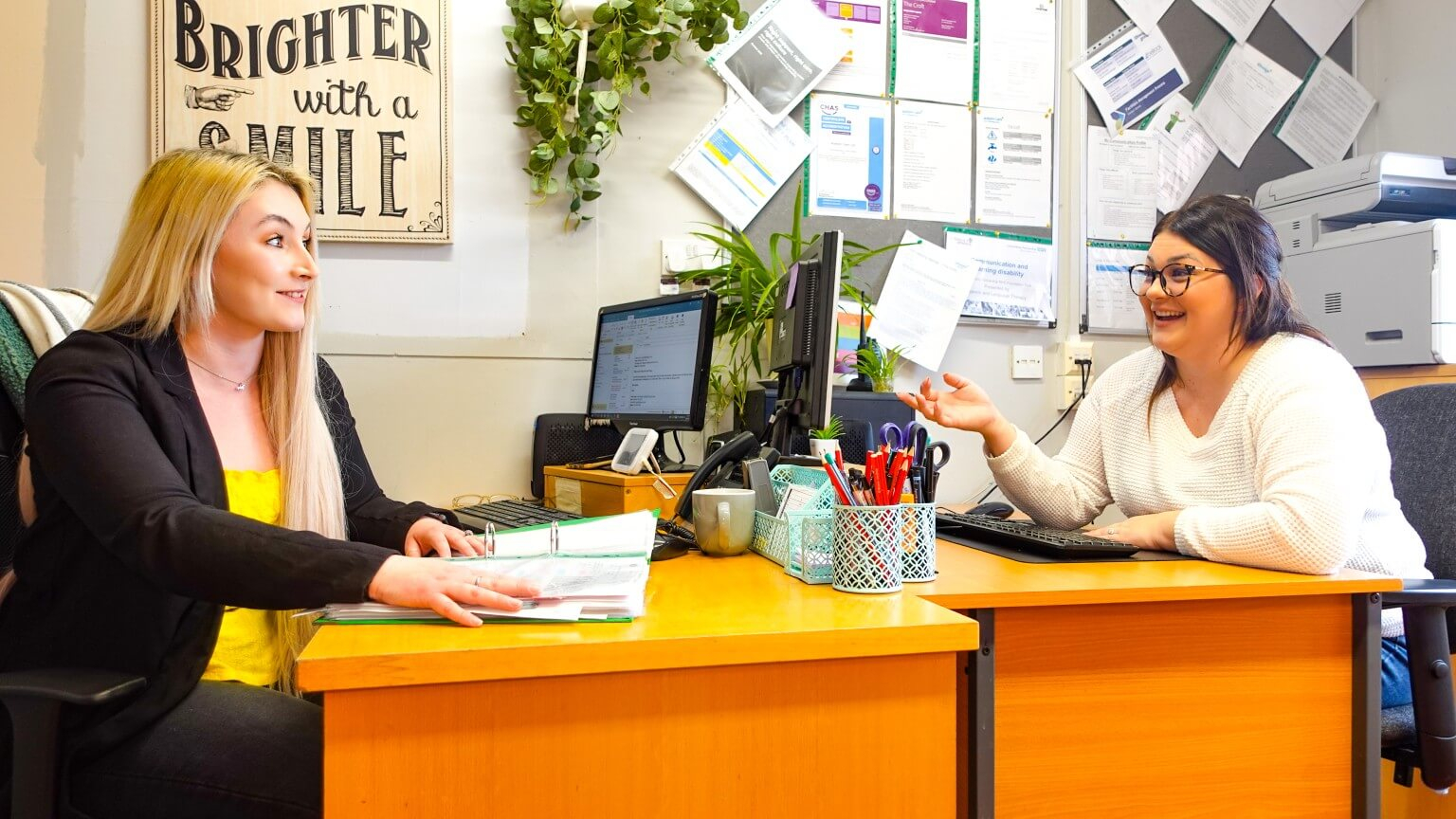The Role of a Deputy Manager
by Sabrina Brown, Deputy Manager at Heath Farm
What does a Deputy Manager do at Lifeways?
A Deputy Manager at Lifeways plays a crucial, hands-on role in ensuring high-quality, person-centred care for people with learning disabilities and autism. In my service, I focus a lot on tailoring training for team members to meet the specific needs of the people we support, rather than just relying on general training.
I run coaching sessions, team meetings, and practical workshops to make sure team members feel confident and capable. I’m heavily involved in team member welfare too - checking in through quizzes, feedback sessions, and one-to-one support to keep morale high.
Induction is another big part of my job; I make sure new starters shadow experienced team members and get to know the people we support properly. On top of that, I handle important paperwork like rotas, KPIs, and compliance with commissioned hours.
I support the Registered Manager with investigations, absence management, and team member adjustments where needed. Encouraging team member development is big for me, helping people step up through medication training, apprenticeships, and leadership opportunities.
Ultimately, my role is about making sure everyone, from support workers to team leaders, feels supported, skilled, and ready to deliver the best outcomes for the people we support.

What experience or background do you need to become a Deputy Manager?
For anyone wanting to step into a Deputy Manager role, having solid frontline experience in the relevant care setting is essential. For me, working directly with people with autism and learning disabilities was vital because it gave me the practical understanding of their daily support needs.
Supervisory experience is equally important. I managed a team as a Team Leader for about two and a half years before becoming a Deputy Manager, which helped me learn how to balance frontline work with leadership responsibilities.
Strong communication skills and IT skills are also a must these days since so much is digital now. Being able to work well in a team is key too. You can’t be effective in a senior role if you can’t collaborate and involve others in decision-making.
I’ve seen people from other industries come in during tough times like COVID and thrive because they had people skills and could adapt quickly. So, while care experience is ideal, good people skills, adaptability, and the ability to lead and motivate others can make someone a great fit.
A willingness to keep learning and growing also goes a long way.
What leadership qualities help someone thrive in the Deputy Manager role?
Adaptability is the biggest leadership quality I’ve learned to value in this role. Every team member is different - what works for one doesn’t necessarily work for another. I’ve learned to adjust my approach, whether that’s giving more coaching to some people or giving others more responsibility to help them grow.
Being approachable is crucial too. I keep my office door open so team members feel comfortable popping in for a chat or to raise concerns. Building trust really helps prevent issues from escalating.
Resilience is another important quality. Things don’t always go smoothly in care. A good Deputy Manager stays calm, looks at what could be done better, and brings the team back together positively. Collaborative working is vital - I make a point of involving frontline team members and the people we support in decisions.
That way, plans are realistic and everyone is on the same page.
Lastly, I think passion for developing people matters. I push my team to progress through extra training, apprenticeships, and step-up roles. Supporting others to grow into leadership helps create a stronger service overall.

How does being a Deputy Manager prepare you for career progression?
Being a Deputy Manager is fantastic preparation for stepping up to become a Registered Manager or even higher. In my role, I'm trusted to run the whole service when my Registered Manager is away, so I gain first-hand experience of what the top job involves.
I’ve also supported other services that didn’t have a manager at the time, which pushed me to handle new challenges and develop my confidence. The company encourages this growth; my manager involves me in her projects, inspections, and bigger decisions, so I’m always learning.
There’s great training too - the leadership and management training has been brilliant for giving me new tools and ideas. The apprenticeship pathway, like the Level 5 in Leadership for Adult Care, is really valuable and works alongside your day-to-day job, so you get theory and practice together.
We have a supportive network across services, and even the Executive Leadership Team is approachable if I need advice.
Overall, I feel trusted and supported, and every day in this role builds my skills for the next step. It’s a role where you genuinely grow as a leader and get ready to handle more responsibility in the future.
Sabrina Brown, Deputy Manager
How to become a deputy manager
If you’re looking for a deputy manager role, please take a look at our available roles. We have many exciting opportunities across the country. You might also like to read our blog to find out more about what a career in supported living is like.
If you have any questions about becoming a deputy manager in one of our many Lifeways locations, please feel free to get in touch.

